Legal Automation: Unlocking the Power of RPA for Law Firms
The legal industry is undergoing a significant transformation, and much of it is due to legal automation. One of the most powerful tools driving this change is Robotic Process Automation (RPA). Imagine a world where law firms could automate repetitive tasks, improve compliance, and streamline operations—this is the promise of RPA. By allowing legal professionals to focus on high-value work, RPA is revolutionizing how law firms operate. In this blog, we’ll explore the impact of RPA for law firms, the key benefits, real-world examples, challenges, and a glimpse into the future of legal automation.
Written by Knowledge Team, posted on Sep 20, 2024

What is RPA and How Does it Benefit Law Firms
At its core, Robotic Process Automation (RPA) is a technology designed to automate routine and repetitive tasks. In the legal world, where hours are spent on document reviews, billing, and compliance tracking, RPA offers a much-needed solution. By streamlining these time-intensive processes, RPA frees up legal professionals to focus on higher-value tasks. Here’s how RPA benefits law firms:
1
Increased Efficiency
Automation allows for faster completion of repetitive tasks.
2
Improved Accuracy
With less human input, errors in document preparation and compliance are significantly reduced.
3
Real-Time Analytics
Firms gain operational insights that help drive informed decision-making.

4
Seamless Integration
RPA can work hand-in-hand with existing legal software systems.
5
Enhanced Compliance and Security
The automation process ensures that tasks follow legal standards and regulatory requirements.
6
Time and Cost Savings
By cutting down manual work, firms save both time and money, allowing for a more streamlined workflow.
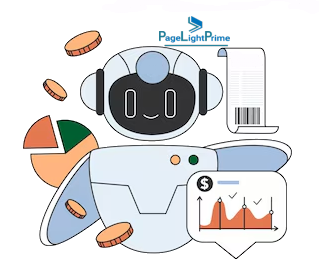
Common Legal Tasks That Can Be Automated with RPA
The potential of RPA in law firms extends far beyond document assembly. From managing client communications to compliance monitoring, RPA offers automation for numerous tasks:
1
Document generation and management
Automatically create legal documents.
2
Contract review and monitoring
Draft and track changes in contracts.
3
Legal research and e-discovery
Automate searches for case law and precedents.
4
Data extraction and entry
Process legal data quickly and accurately.
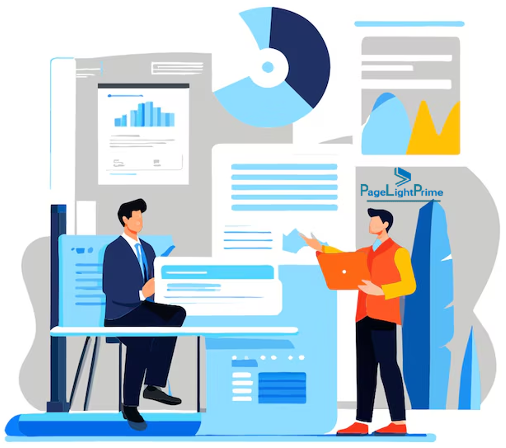
5
Compliance monitoring
Ensure all regulatory updates are captured and applied.
6
Billing and invoicing
Automate financial tracking and payments.
7
Case management
Organize case files, deadlines, and document submissions.
8
Client communications
Automate reminders and client notifications.

How Can RPA Improve Document Assembly in Law Firms
Consider the time lawyers spend drafting contracts, affidavits, and legal documents—time that could be saved with automation. With RPA, the process of document assembly becomes faster and more consistent. Lawyers can now focus on higher-level legal strategy while RPA handles the heavy lifting.
RPA assists in document assembly by:
- Automating standardized document creation, ensuring consistency across cases.
- Extracting data from multiple sources and filling it into templates, reducing manual input.
- Speeding up document reviews by flagging missing information or errors.
- Updating documents in real time when regulations change, always ensuring compliance.
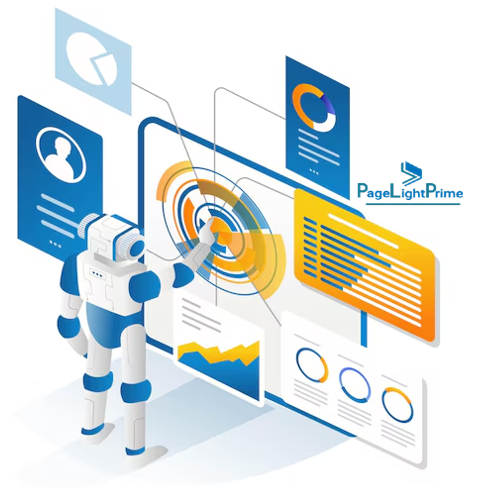
Benefits of RPA for Law Firms
1
Increased Efficiency and Productivity
When repetitive tasks are automated, law firms can significantly improve their productivity. Instead of spending time on routine work, lawyers can focus on more strategic activities, such as case strategy and client counseling.
2
Improved Accuracy and Reduced Errors
Human error is an inevitable part of manual processes. RPA, however, reduces these risks by automating tasks like data entry, document review, and compliance tracking, ensuring that tasks are done accurately and consistently.
3
Real-Time Analytics and Reporting Capabilities
With RPA, law firms gain the advantage of real-time analytics. By providing insights into performance, billing, and case progress, these analytics allow for more data-driven decisions, improving the overall efficiency of the firm.

4
Seamless Integration with Legal Software
RPA solutions can easily integrate with existing legal software systems, such as lawyer billing software, document management, and case management platforms. This eliminates the need for costly system overhauls, allowing firms to continue using familiar tools while automating tasks in the background.
5
Enhanced Compliance and Security
Compliance and data security are critical for law firms. RPA helps ensure compliance by continuously monitoring regulatory updates and making sure legal documents are always up-to-date. Additionally, with built-in encryption and access control features, RPA keeps sensitive client information secure.

6
Time and Cost Savings
By automating routine work, law firms save time and reduce the need for additional administrative staff. These savings can be reinvested into growing the firm or improving client services.
7
Allows Lawyers to Focus on High-Value Legal Work
Ultimately, the goal of RPA is to allow lawyers to spend more time on complex legal analysis, client engagement, and case preparation by handling the low-value tasks that can be automated.

Integrating RPA with PageLightPrime
For law firms aiming to harness the full potential of RPA, PageLightPrime, legal firm practice management solution built on Microsoft 365, offers a robust platform. By leveraging Microsoft Power Automate, PageLightPrime enables seamless integration of RPA into your firm’s workflows.
Here’s how PageLightPrime enhances RPA implementation:
1
Power Automate Data Connector
Use Power Automate to connect with PageLightPrime’s data and processes, automating routine tasks directly within your practice management environment.
2
Streamlined Automation
Automate document management, client communications, billing, and more, using the robust capabilities of Power Automate.
3
Enhanced Efficiency
Leverage PageLightPrime’s integration with Microsoft 365 to ensure that automation aligns with your firm’s existing systems and processes, reducing disruption and enhancing productivity.

By implementing RPA through PageLightPrime, law firms can achieve a higher level of efficiency and accuracy, making the most of their practice management system while staying ahead in a competitive legal landscape.
Real-World Examples of RPA Use in Law Firms
Several law firms are already experiencing the transformative power of RPA. Here are a few examples:
1
Automating Document Creation
Firms leverage RPA in combination with legal document automation software to generate standardized legal documents, significantly reducing the time spent on drafting.
2
Extracting Key Information
RPA bots scan contracts and extract relevant clauses, speeding up the review process.
3
Monitoring Regulatory Changes
RPA keeps legal documents complaint by automatically reflecting updates in regulations.
4
E-filing Automation
Law firms automate the e-filing of documents, reducing administrative workloads.

Challenges Law Firms Face When Implementing RPA
Though the benefits are clear, implementing RPA in law firms isn’t without its challenges:
1
Initial Setup and Customization
Setting up RPA requires proper customization to ensure it meets the unique needs of each law firm. This process can involve a significant initial investment in terms of both time and resources.
2
Integration with Legacy Systems
While RPA integrates well with modern systems, some law firms might face difficulties when dealing with older, legacy software systems. A thorough evaluation of the firm’s IT infrastructure is essential.
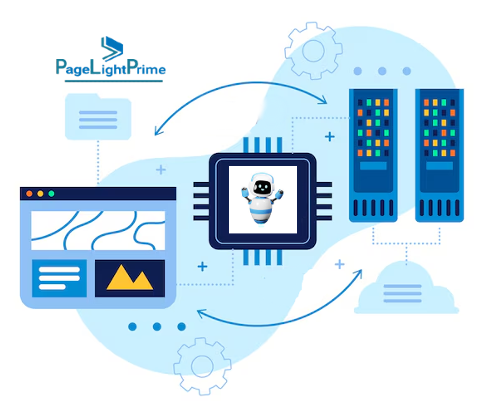
3
Change Management and Staff Adaptation
Adapting to new workflows requires careful change management. Staff must be trained to work alongside automated systems, and ongoing support should be provided to ease this transition.
4
Data Security and Compliance Concerns
Given the sensitive nature of legal work, it’s crucial that any RPA system meets strict data security and compliance standards. Legal firms must ensure that automated processes align with all applicable regulations.
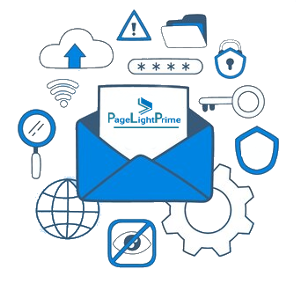
How Does RPA Enhance Compliance and Security in Legal Practices
For law firms, compliance and security are paramount. RPA enhances compliance by automating the tracking of regulatory changes and ensuring that legal documents remain up to date. In addition:
1
Automated Compliance Monitoring
Regulatory changes are tracked and reflected in legal documents automatically.
2
Reduced Risk of Human Error
Automation minimizes the likelihood of mistakes that could lead to non-compliance.
3
Advanced Security Features
RPA systems come with encryption and access controls to protect sensitive client data.

Comparison with Other Legal Technologies
| Feature | RPA | AI | Contract Lifecycle Management (CLM) |
| Focus | Task-based automation | Intelligent decision-making | Contract management |
| Capabilities | Rule-based automation, repetitive tasks | Natural language processing, machine learning | Contract creation, negotiation, and management |
| Benefits | Increased efficiency, reduced errors | Improved accuracy, predictive analysis | Streamlined contract workflows, better compliance |
| Best suited for | Routine, repetitive tasks | Complex legal analysis, decision support | Contract-intensive processes |
RPA excels at automating routine, repetitive tasks, while AI offers more advanced capabilities like natural language processing and machine learning for complex legal analysis. CLM focuses on the entire contract lifecycle, from creation to execution and management.
Future Trends in Legal Automation and RPA
The future of legal automation promises even greater advancements. Here are a few trends to watch:
1
AI Integration
Future RPA systems will integrate with AI to offer predictive analytics, helping lawyers make strategic decisions.
2
Automated Client Interaction
More sophisticated tools, such as legal chatbots and automated appointment scheduling, will improve client communications.
3
Advanced Data Analytics
RPA will offer deeper insights into client behavior and case outcomes, empowering firms to optimize their strategies.
4
Adapting to Evolving Regulations
As laws change, RPA systems will become more adaptive, ensuring that compliance procedures evolve with new regulations.

Case Studies: Successful RPA Implementations in Law Firms
Litigation Law Firm
RPA Implementation
Automated routine tasks like document generation, data extraction, and client onboarding.
Positive Outcomes
Increased efficiency by 30%, reduced errors by 80%, and improved client satisfaction.
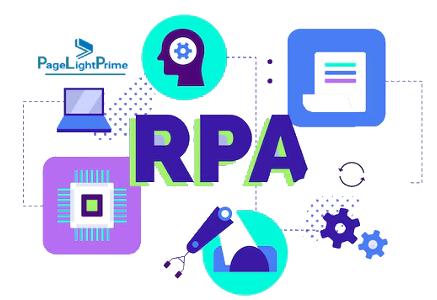
Corporate Practice
RPA Implementation
Automated contract review, due diligence, and regulatory compliance tasks.
Positive Outcomes
Streamlined operations, reduced costs, and improved accuracy in legal work.
Family Law
RPA Implementation
Automated billing, invoicing, and financial reporting processes.
Positive Outcomes
Enhanced financial efficiency, improved data accuracy, and reduced risk of errors.

Conclusion
“
By adopting RPA for legal automation, law firms can dramatically increase their efficiency, improve compliance, and focus on delivering high-value legal services. While the path to implementation comes with challenges, the benefits far outweigh the costs. PageLightPrime, integrated with Power Automate, offers a robust solution for leveraging RPA in practice management. Embracing these technologies not only enhances operational efficiency but also positions law firms for success in a rapidly evolving legal landscape.
“
Frequently Asked Questions (FAQ)
How long does it take to implement RPA
The implementation timeline for RPA can vary from a few weeks to several months, depending on the complexity of the project and the firm's existing IT infrastructure.
What are the potential risks of RPA implementation
Some potential risks include the need for ongoing maintenance, the risk of job displacement, and the potential for data security breaches if not implemented correctly. However, when implemented effectively, RPA can mitigate these risks and provide significant benefits.
Can RPA replace lawyers
No, RPA is not intended to replace lawyers. Instead, it is designed to automate routine tasks, freeing up lawyers to focus on more complex and strategic work.
How can law firms measure the ROI of RPA implementation
Law firms can measure the ROI of RPA by tracking improvements in efficiency, accuracy, and cost savings. They can also quantify the time saved by lawyers who are able to focus on higher-value tasks.
Can RPA integrate with existing legal software systems
One of the major advantages of RPA is its ability to integrate seamlessly with existing legal software systems. Whether it’s legal document management software, billing, or client relationship management tools, RPA is designed to complement and enhance existing technologies without requiring a complete IT overhaul.
